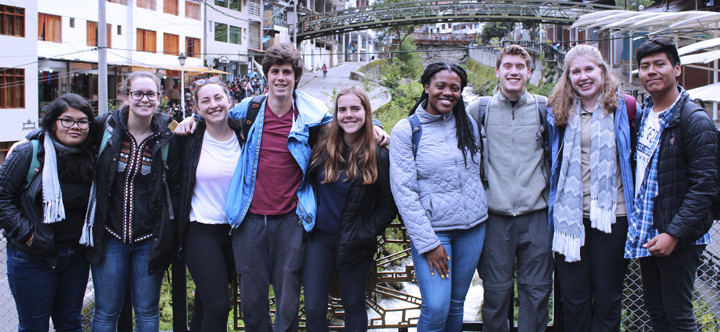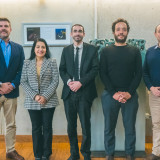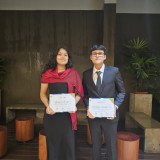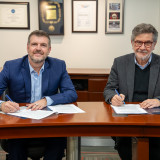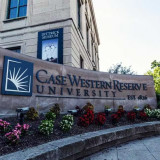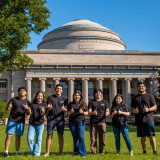- We are Utec
- Admissions
- undergraduate Programs
- Graduate School
- Companies
- Ventures
- Apply to UTEC
- English
- Español
Languages
Learn
About Us
Our Academic
Offer
Ingenuity,
dedication, and
the pursuit
of excellence
International
alliances
Learn
About Us
The university that empowers ingenuity, innovation, and entrepreneurship.
Our Academic
Offer
With our active learning methodology, our students experience engineering from day one.
Ingenuity,
dedication, and
the pursuit
of excellence
Our students' DNA: achieving highest academic achievement and personal development.
International
alliances
We've built strong relationships with the best educational institutions in the world.
Research
Experience
The right path to finding better solutions.
Sustainability UTEC
Sustainability documents
Contact:
Giancarlo Marcone
HACS DIRECTOR
gmarcone@utec.edu.pe
Learn
About Us
The university that empowers ingenuity, innovation, and entrepreneurship.
Our Academic
Offer
With our active learning methodology, our students experience engineering from day one.
Ingenuity,
dedication, and
the pursuit
of excellence
Our students' DNA: achieving highest academic achievement and personal development.
International
alliances
We've built strong relationships with the best educational institutions in the world.
Research
Experience
The right path to finding better solutions.
Sustainability UTEC
Sustainability documents
Contact:
Giancarlo Marcone
HACS DIRECTOR
gmarcone@utec.edu.pe
By: Lucia Solis.
''I realized that it was much bigger than I thought. I said: well, this is a real problem.'' This was the first thought Joaquín Salazar (UTEC - Mechanical Engineering) had, while observing, a few minutes after landing in Madre de Dios, the zones increasingly affected by illegal mining in the Peruvian Amazon.
Along with him, five students from UTEC and six from Harvard, made a field trip to Puerto Maldonado and Cusco as part of the Sixth edition of the Collaborative Field Program between both universities. The objective? study agriculture as a viable alternative to prevent the consequences of informal gold mining. It was not easy. Understanding the impact of this practice implies a much deeper analysis.
''I knew the environmental outcomes, but not how it happened or the social consequences such as human trafficking,'' says Jonathan Hamilton (Harvard - Environmental Science and Public Policy). Observing the social, environmental and economic impact of informal mining in the regions of Madre de Dios and Cusco was decisive during the eight-day field trip led by Carlos Ríos, Associate Professor of Mechanical Engineering at UTEC and Joost Vlassak, Professor of Materials Engineering at the Harvard School of Engineering (SEAS).
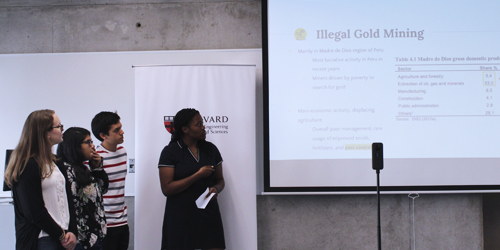
Another of the main objectives of the program, which was partially funded by the US Department of State through the 100k Strong in the Americas Fund obtained by UTEC in 2018, was to analyze the agricultural practices of the local communities in order to identify the challenges that the SNAP prototype created by the students of the Fifth Edition carried out in 2018, which will be a portable system for analyzing macronutrients N, P, and K in soils. But perhaps the most important aspect of this year's program is the approach of the students to the local communities through talks and interviews.
"I didn’t think about the similarities that there could be in the jungle and in the mountains like not having enough production, until we were there," says Jessica Klusty (Harvard - Engineering Sciences: Bioengineering). After briefings in Lima about the current dynamics of the communities in the Peruvian rainforest, the functioning of the rivers and the relationship between mining and agriculture in Peru, the students put into practice what they learned in theory.
They also received introductory talks in Madre de Dios and Cusco thanks to the support of the Amazon Scientific Innovation Center (CINCIA), Universidad Nacional de la Amazonía in Madre de Dios (UNAMAD) and the Research Institute of the Peruvian Amazon (IIAP). The visits to communities like Agua Blanca and Huakaytaki, as Jessica said, helped them to have a different perspective of the problem of informal mining and the challenges faced by local agriculture detailed by the main actors: farmers and miners.
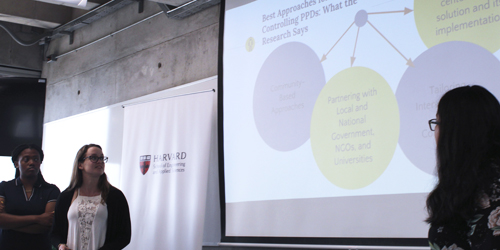
With the advice of professors Carlos Ríos and Joost Vlassak, the students were able to devise proposals that improve the quality of agriculture and that could emerge as a viable and sustainable option against informal mining. "They wanted us to think about the problem for ourselves. They didn’t tell us exactly which direction to take. They wanted us to take the information and propose what we really thought", says María Burzillo (Harvard - Applied Math).
The proposals that both delegations, divided into three mixed groups, presented in Lima after the field trip involve information and awareness programs, immersion sessions and interactive apps. All the proposals had a strong social component behind and based on the needs of the farmers.
Lucía Álvarez (UTEC - Energy Engineering) believes that this experience will help her develop as a future engineer. "I learned from the most technical aspects to the social implications in solving problems," adds Bruno Oyague (UTEC - Mechanical Engineering), while Serena Davis (Harvard - Computer Science) says: "I'm leaving with 11 new friends I did not have two weeks ago, with many experiences and skills that I can use in my personal and professional life. That's what this program is all about. ''
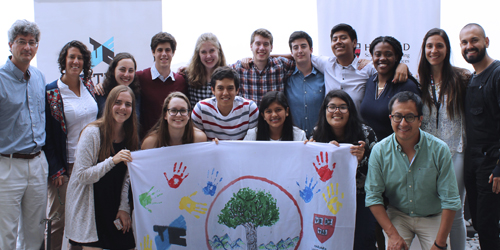
*This project was funded in part by a grant from the U.S. Department of State, Embassy of the United States in Lima Peru, Cultural Affairs Section, and administered by Partners of the Americas. The opinions, findings and conclusions stated herein are those of the author(s) and do not necessarily reflect those of the U.S Department of State or Partners of the Americas.
EN UTEC VENIMOS DESARROLLANDO LA TECNOLOGÍA
Y LA INGENIERÍA QUE NECESITA EL MUNDO DEL MAÑANA
Carreras en ingeniería y tecnología que van de la mano con la investigación y la creación de soluciones tecnológicas de vanguardia, comprometidas con las necesidades sociales y la sostenibilidad.
Decide convertirte en el profesional que el mundo necesita. Estudia en UTEC y lleva tu ingenio hacia el futuro.
Noticias recientes
-
- STUDY ABROAD
- Studying in Peru
- Living in Peru
- FAQ
- Application Form
- Contact us
-
- EXECUTIVE EDUCATION
- Executive Education
- Short Courses
- Inhouse Courses
- Calendar
